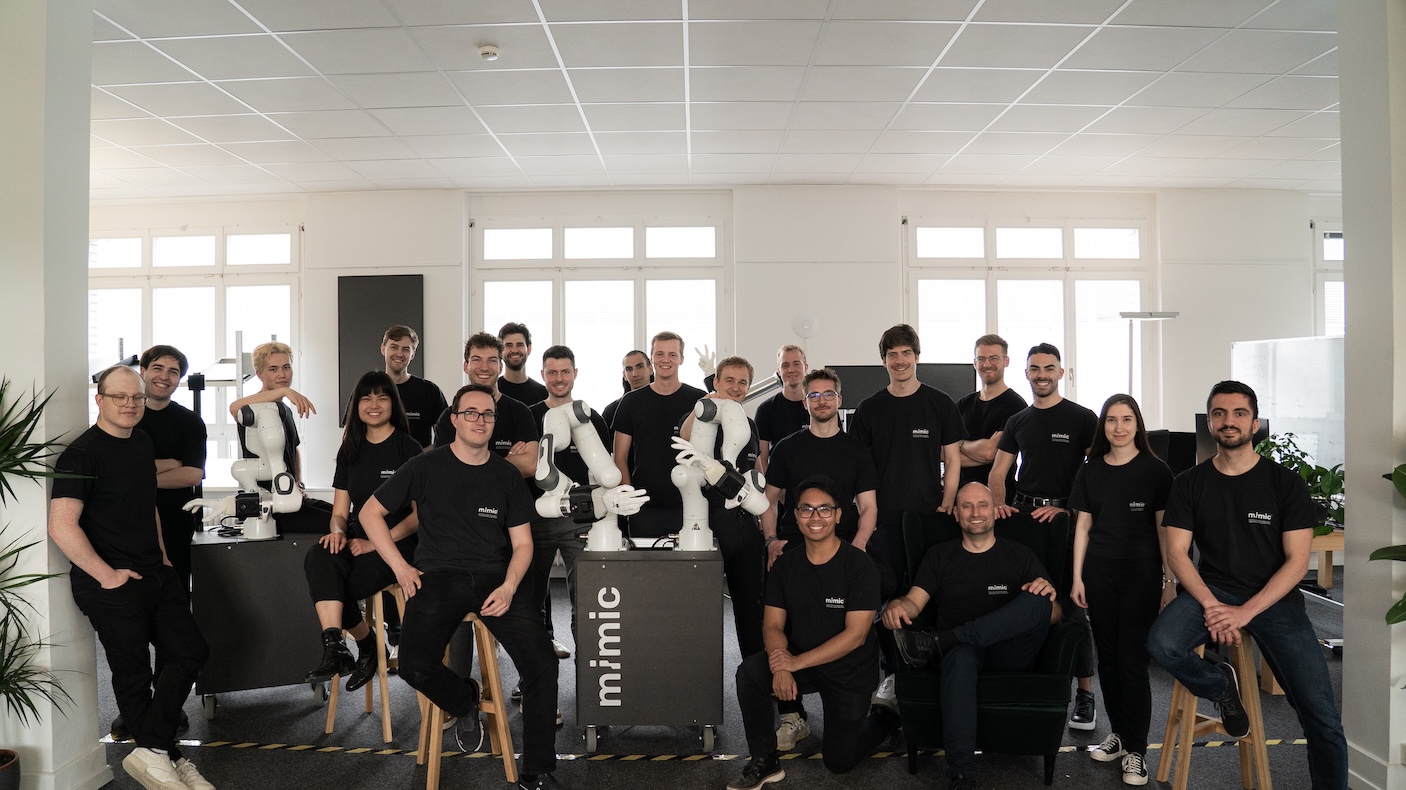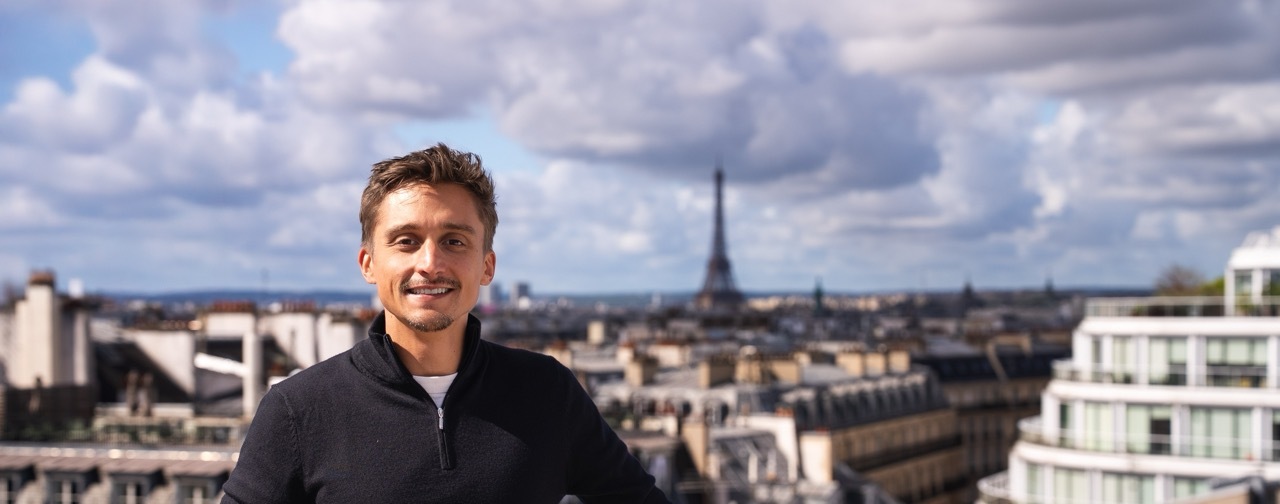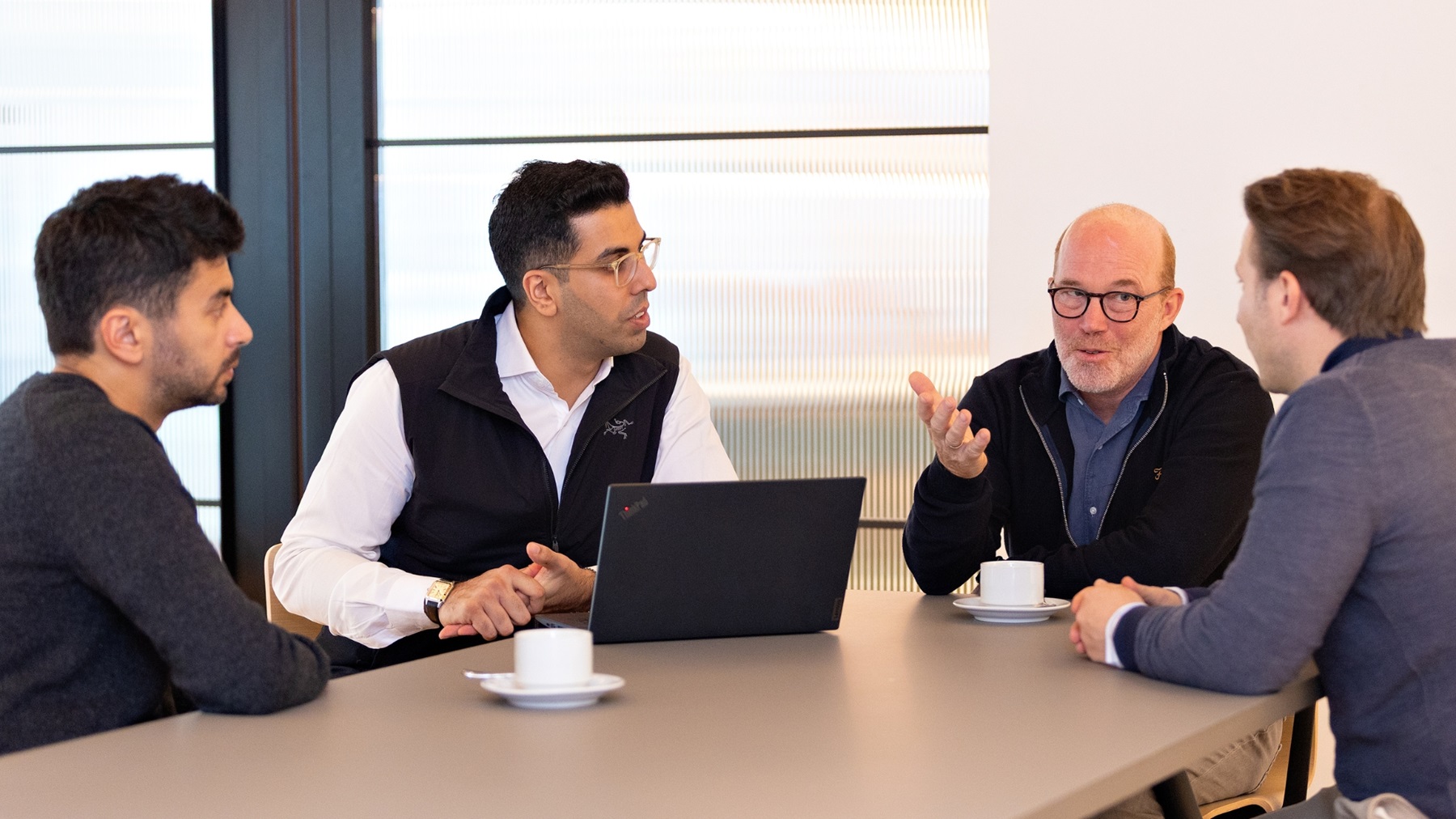The Real Reason Speedinvest Raised €500 Million in Funds
If you haven’t already heard, Speedinvest just announced €500 million in new funds. This brings our total AuM north of one billion.
For us, this is big news. But I’m sure some of my more cynical founder friends are probably saying, “Who cares!” since so much money has been (and continues to be) raised by countless VCs all claiming to be early-stage investors.
Why do I think you should care? Because Speedinvest is building something very different from most other firms. And if we are successful, it may just change the industry––and the lives of founders––for the better.
That’s a big claim, so let me explain.
In just 10 years, we have grown from a tiny €10 million Austrian fund to one of Europe’s largest and most-active Seed investors. Without any background in VC, but years of entrepreneurial experience under our belts, we refused to buy into the magic wisdom of boardroom VC or the industry truism that early-stage investing has to be run as a boutique firm. What we saw from the beginning, instead, was a fast-growing industry in massive need of personalization and professionalization.
That’s why we have spent the past decade doing just that––building a scalable, high-impact investment platform that truly benefits our portfolio companies. Our sector-focused investment teams, our operational support platform, and our multi-office, pan-European approach––all of this is done with one single-minded focus: helping the founders we partner with to scale their startup to global success.
What’s so different about that? Traditionally, Europe has primarily been home to early-stage VCs with very few partners who invest in a handful of local startups. At Speedinvest, we now have roughly 100 full-time professionals across five offices and two joint ventures. A little different, right?
We’re different because we believe venture capital has reached an inflection point that requires challenging the status quo. Not only to be prepared for this change, but to lead it, we have been working behind the scenes for several years to develop our playbook for change. It’s now time to let you in on the why and share exactly what we’re doing to make it happen.
Will venture capital ever be more than just money?
Venture capital is a very young asset class and industry. Let’s not forget, the first VC firm was born just about 50 years ago. However, within only five decades, the six largest US companies by market capitalization were all VC-funded. Not to mention the amount of capital flowing into VC has significantly grown in absolute and relative size within the PE asset class. As a result, VC is increasingly becoming a top career choice for university graduates, and brands like Sequoia and A16Z are widely admired across business and finance circles. In other words, VC is now mainstream.
Still, for founders, the actual experience with VC remains underwhelming. The “product” of VC has not materially changed since the seventies. Parts of the old-school product still work: uncomplicated access to cash, board advice, and introductions––the last being more or less helpful depending on the individual partner at work. But beyond that, there’s a lot left to be desired. We’ve all seen the “VCs helping founders” memes.
As the asset class matures, one would expect that the industry itself would follow suit, leading to more consolidation, professionalization, and scale. As already witnessed in private equity, strategic consulting, and investment banking, such maturation translates into more professional and consistent service offerings for its main constituents. For venture capital, those constituents are founders.
But to this day, early-stage VC remains dominated by small-scale, specialized boutique firms with limited scale and limited brand equity, especially in Europe but also largely in the US. This structural conservatism stands in stark contrast to the business at hand, which is at its core all about innovation and finding ways to scale. The argument that only small shops of a handful of experienced leaders (read: old white men) can deliver the highest quality for all stakeholders has been proven wrong by many industries. The likes of McKinsey, Goldman Sachs, and many others in their respective fields have proven that the old adage doesn’t carry weight.
So how can we change the game?
In our mission to find a better path to truly offer founders more than just money, we examined the status quo and multiple options for the future of Speedinvest.
Path 1 - Go multi-stage
We have seen the rise of multi-stage platform VCs over the last decade, managing multiple billions of dollars and investing from the earliest rounds to IPO and beyond. Our close partner NEA is a great example, as are Sequoia and A16Z. While this is obviously a great way to build a VC firm, this growth path does not easily translate into a better experience for very early-stage founders.
In a multistage firm, seed-stage investing by nature must be a by-product. The firm’s time, energy, and non-financial resources will gravitate toward the deals where big cheques were placed. The scaleup worth billions naturally demands a lot more attention than the next pre-seed founder with nothing more than an idea.
Path 2 - Stay small and local
This leaves us with traditional seed funds that, so far, followed a standard blueprint: regional or sectoral focus, 20-30 portfolio companies per fund, a small set of partners, and a boutique-sized firm. While some funds can both provide first-class support in the niche they cover and produce great returns for their LPs, no one has the resources to really innovate. As seen above, that’s why the Seed VC offering has basically stayed the same over the last 30 years.
Path 3 - Forge our own path
Seed is rightfully called the original deal, the core of venture capital. At no other stage can a fund make a larger difference in the success of a startup. The younger the portfolio company, the more fragile it is. Every input and act of support can create massive outcomes. It’s the most promising way a fund can deliver higher returns.
If we manage to solve Seed, we solve the VC puzzle
So our ambition is simple: We want to keep our focus squarely on Seed but take this to the next level by offering a better product to all of our stakeholders. That means founders and their companies, LPs, corporate partners, employees, and collaborators. By building scalable structures, processes, and technology as a seed-focused firm, we aim to systematically improve:
- The likelihood to pick winners (or them picking us)
- The quality and range of service to founders post-investment
- Consistent financial outperformance for our LPs
- A strong company culture where the very best talent grows and stays
If we can prove Seed at Scale is a viable, successful model, we will change the industry for the better for all stakeholders.
What qualifies us to lead this change?
One might ask why Speedinvest, a fund launched just 11 years ago from “nowhere” (i.e., Austria), would qualify to deliver on such a promise.
The truth is that our firm was set up from the beginning much more like a startup than a traditional VC firm. In 2011, with just €10 million AuM, Speedinvest already had six full-time partners (all former startup operators), two offices (Vienna and San Francisco), and a massive ambition to grow. While scaling over the years to almost 100 employees (out of which 20 are partners) with over €1 billion in assets under management, we kept on asking ourselves the same questions:
- How can we grow?
- How can our growth benefit our partners (founders, LPs) more?
Similar to what we preach to our portfolio companies, it took us a while to find product-market fit. After years of iterations and experimentation, many of them failing miserably, we believe we have found our formula.
In startup terms, we view ourselves much more as a scaleup that has found its product-market fit: Seed is our core business, and we will continue to scale within the early stages.
Our “formula” might seem different from almost all our peers. We are comfortable with being different because different is in our DNA.
So what is the Speedinvest formula? Below are the five core beliefs that drive our Seed at Scale strategy.
Our Seed at Scale core beliefs
VC is a team sport, not a one-person show
We believe that VC is a team sport and different perspectives and backgrounds make us stronger. An experienced partner that has seen it all, a young expert who has read all the research papers, and a sector specialist who has worked in one industry for over 10 years––none of them own the absolute truth. But good decisions are consistently made when their different, unique perspectives are combined. Making this a reality in day-to-day business requires a very distinct culture, and most importantly, people of different backgrounds around the table.
This is why we have built a large, diverse investment team with investment partners assisted by a strong junior investment team. Our portfolio is further supported by a team of in-house operational experts and two joint ventures that offer HR and growth services, and we are all enabled by a strong mid- and back-office machine covering finance, legal, fundraising, investor relations, corporate development, communications, and HR. We firmly believe VC is a service business. And delivering world-class service, like it or not, requires investing in and building your team.
For everything to work, that team must be glued together with the right culture and structure, where everyone can play to their own strengths, work autonomously, and remain focused. This is what also enables us to have clear career paths for our top talent, as the value contribution is spread out between multiple teams and individuals.
While all this sounds obvious for folks that have built scalable companies, it is not so obvious in VC. But we execute many of the nitty-gritty VC details––think carry, ManCo, partner salaries, decision structures, governance bodies––very much against the grain of this industry and are often much more aligned with startups than our peers. It requires more time, effort, and resources. But we believe it’s worth it. As a result, we’re an overall stronger company that is less vulnerable to generational changes and loss of talent.
Expertise is essential because no one knows everything
We believe that expertise matters. It makes a difference if you have spent the last 10 years analyzing marketplace business models and have a burning desire to be the best investor in that field. It makes a difference if you have spent your career building ties into computer science departments at leading universities in the world so that you can call up the right professor when one of your portfolio companies is in need.
Fundamentally, we believe that VC will follow the path of many other professional service sectors that have risen in importance over the years. Excellence by specialization, and again, not as a single person’s passion, but as a team sport.
How does this actually work in practice? We have built six sector-focused teams (Deep Tech, Fintech, Health, Climate Tech and Industrial Tech, Marketplaces & Consumer, and SaaS & Infra) that autonomously build their own sub-portfolios. Each team is led by very experienced partners and enabled by investors with deep topical expertise. This ensures not only a thorough product and market understanding, but also access to relevant networks and business development opportunities.
Another critical success factor, made possible by both our large team and sector-focused strategy, is cross-vertical collaboration. If we invest in an industrial tech marketplace or SaaS-enabled fintech tool, for example, we can offer them ‘best of both worlds’ expertise from our sector-focused teams. Not to mention, this also allows easier coverage of non-concentrated geographic markets in Europe, by better leveraging each team’s footprint.
Being pan-European has a lot of perks
As one of Europe’s largest Seed investment teams with over 40 investors on the ground across the continent, we have a birds-eye view of the startup ecosystem like no other.
With offices in Berlin, London, Paris, Munich, and Vienna, as well as investors living and working in Stockholm, Madrid, Warsaw, and Bucharest, our team is present in Germany, the United Kingdom, France, Spain, Austria, and all of Europe’s major markets and tech startup hubs. As a result, we receive more than 10,000 pitches from every single corner of Europe each year, which means we have a very good chance of not only seeing but picking the very best deals in Europe.
If we’re only able to invest in less than one percent of companies each year, why do we care how many pitches are received?
Through our research and due diligence on those 10,000 pitches, we’re able to identify trends and innovation opportunities spreading across the continent in real time. Seeing not one, but multiple teams tackling the biggest problems out there in parallel, we have a unique good chance of then picking the very best team in any particular space across Europe.
The benefits and success of our multi-office, pan-European approach led us to recently begin expanding beyond EU borders to build close ties and relationships in several emerging markets, including Africa, the Middle East, and Southeast Asia. We believe employing our unique model in these markets will also be of great benefit to local founders building category-defining companies primed for global success.
VC is more than simply picking winners
As we know, VC is often the butt of jokes when it comes to whether we really do offer value to portfolio companies. Is it simply a stereotype or have a few less-than-stellar VCs ruined the credibility of those genuinely striving to make a difference? We believe reality is very different from perception and we’ve seen tangible results first-hand multiple times over the years.
Many people often underestimate the challenges founders go through in the early stages of building a startup from scratch or the incredibly steep learning curve they face when founding their first company. These challenges are not limited to simply lack of experience or age. Navigating a crisis, changing market conditions, and tightening regulations are incredibly difficult for even the most seasoned of founders to survive.
The value delivered by a VC is often more than one magic solution, but rather a combination of tools and support structures that can move the needle in challenging situations. Boardroom advice, tactical support in key horizontal issues, the right intro at the right time, specific learnings from other founders, and so on.
That said, fundamentally, there are two critical contributions we can make:
- Increase the likelihood of a startup’s survival while they continue experimenting even when times are tough
- Help accelerate an already functioning engine of growth
In our opinion, it is simply a myth that the very best startups––and seasoned entrepreneurs––do not need support. It just means the quality of service offered by the VC industry has (so far!) failed to impress them.
That is why we’ve built a world-class support structure to further enable our sector-focused investment teams to work on behalf of our founders. This includes:
- Operational support for our founders and their companies, driven by a team of in-house operational experts in marketing and growth, HR and People, and PR and communication, along with two joint ventures (Speedinvest Heroes and Speedinvest Pirates) that offer one-on-one support and curated access to external vendors.
- Access to a large community of over 250 portfolio companies where we actively facilitate founder meetings so they learn from each other’s experiences and solve problems together. Additionally, with the help of our CRM and close collaboration with corporate partners, our founder community gets curated access to business development opportunities in Europe and beyond.
- Strong mid- and back-office machine that enables our investors to focus on what they do best while ensuring fast and highly professional transaction management, general operations and LP reporting. Through our existing technical infrastructure, we are automatizing portfolio monitoring and reporting, starting with data collection from portfolio companies and ending with reporting for LPs and local authorities.
And remember: None of these efforts would be possible with a traditional “boutique style” setup. Scale matters.
Large portfolios managed well offer better diversification and top performance
We lead pre-seed and seed rounds in approximately 100 companies per fund. We also push for board positions in many of those investments and actively aim to be close and trusted partners with all of our new founders.
For people familiar with VC portfolio construction, we know this strategy sounds incredibly unusual. Popular belief (status quo) says that a seed fund only has two sensible options: either build a concentrated portfolio of 20 to 25 bets with high ownership and high involvement or ‘spray and pray’ with 100-plus investments as a small co-investor. As you’ve probably already guessed, we don’t believe those are the only viable options.
We’re not alone. Both analytical rigor and multiple Monte Carlo fund studies on optimal portfolio construction point to a different model. All things equal and assuming the same underlying power law (only a few big winners ultimately determine the fund’s overall performance), broadly diversified portfolios consistently outperform concentrated ones. The reason is simple: If your goal is to only go after low probability / high outcome opportunities (which is exactly what seed stage VC is), you need quite a few ‘shots on goal’ to consistently hit great returns.
If this is the case, why isn’t every VC playing the game differently? The true constraining factor is simply human resources. You cannot lead 100 rounds with a small, boutique team. Scaling your organization is required to make it possible and very few VC firms are ready to go down that path.
We have been consistently deploying this model since our second fund (2015), and with consistent top-quartile performance across all fund generations, we think it’s safe to say it seems to be working.
But we’re just getting started
Of course, we are aware that we are a very long way away from truly having proven anything. VC firms are not built overnight but over decades. The next 24 months, especially, will prove if our model really makes a difference for entrepreneurs.
I remain optimistic. As a serial founder, I certainly know how amazing it feels when you finally hit product-market fit. I firmly believe we’ve found our PMF and that our core hypotheses will hold up if we can continue to execute at the highest level and keep our company culture and core values intact in the process.
With €500 million of fresh capital to deploy, we certainly have been given a mandate.
Our LPs not only believe what we’re doing is working but have enabled us to further strengthen our scalable, high-impact investment platform. This ensures we can partner with even more of Europe’s very best early-stage companies and offer them the same level of support we’ve provided wefox, GoStudent, Bitpanda, and countless other portfolio companies, so they too can scale globally.
I am very grateful for the trust given to us and take the huge responsibility of delivering on our promise to all stakeholders seriously. To our founders and their companies, LPs, corporate partners, employees, and collaborators, we appreciate your continued support. I am more confident and excited than ever that together we can solve the early-stage VC puzzle and truly take our industry and the founders behind it to new heights of success.













.svg)
